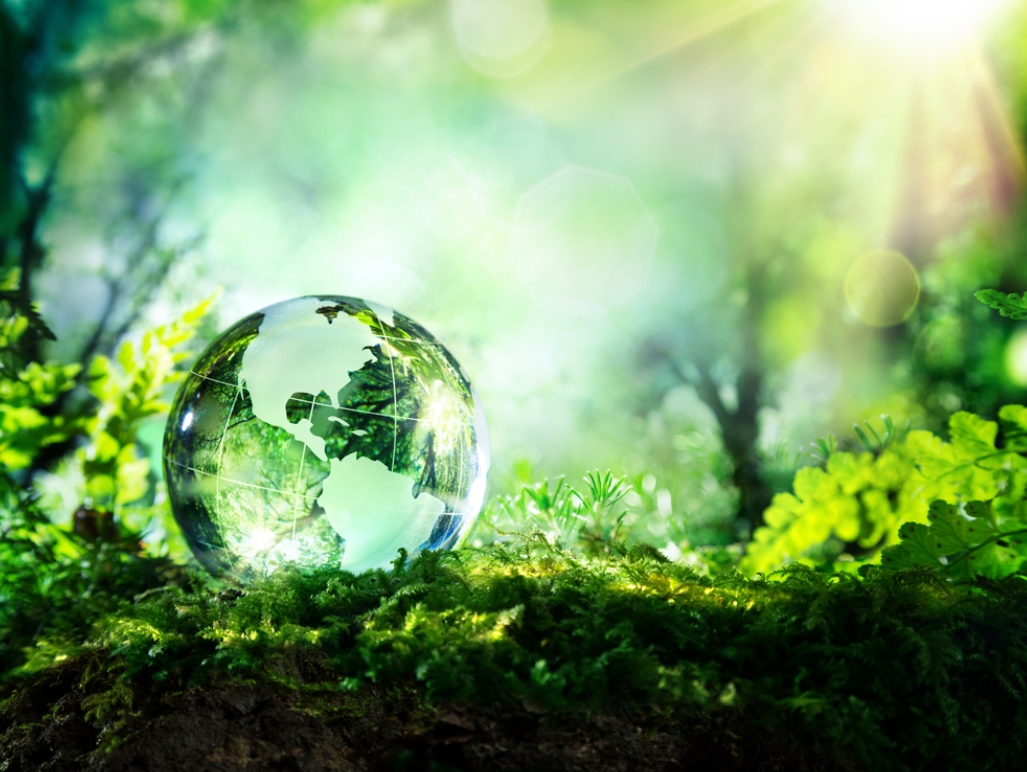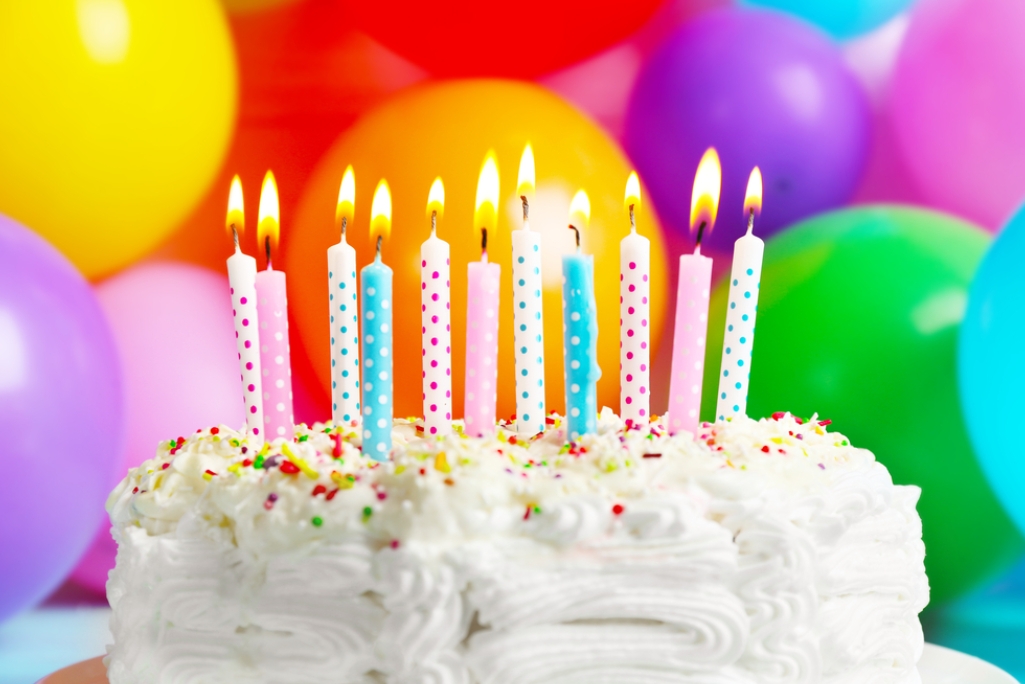Why Don't We Remember Anything Before Age 3? 5 Points to Ponder
How is breast milk adapted to a baby's changing needs? What is nature's "sanitation department"? What role are we chosen to partner with Hashem in, and what's the proper way to celebrate a birthday?
 (Photo: shutterstock)
(Photo: shutterstock)Who Handles the Supply of Breast Milk?<\/u><\/strong><\/p> Beyond the many benefits of breast milk and breastfeeding, the quantity of breast milk is fascinating:<\/p> The milk is not too abundant so as not to burden the mother and to prevent it from flowing without the baby's consumption.<\/p> The milk is not too scarce so the baby will not tire when wanting to suckle.<\/p> The amount of milk depends on the baby's sucking rate: as he grows, his appetite increases, and he suckles more, thus increasing the flow of milk.<\/p> If milk flow was strong initially, the baby might choke. If the flow was weak, the baby would tire as he grows and starve.<\/p> This is one of Hashem's mercies, who made the suckling place narrow like the eye of a needle, precisely suited to the nursing baby. Another wonder is that as the baby grows, the opening grows with him.<\/p> Who measured the required quantity of breast milk and calibrated it within the mother's body? Who ensures a continuous supply of milk, tailored to the baby's needs over time, without any malfunctions, and in the best way for the baby's health?<\/strong><\/p> <\/p> "The Ministry of Environmental Quality"<\/u><\/strong><\/p> We produce waste, throw it in the trash, and daily, a truck responsible for environmental quality arrives to remove the garbage.<\/p> But have you ever considered what happens in nature? Who removes all the carcasses and remains accumulating daily in open spaces? Clearly, without garbage removal, it would result in a severe ecological disaster causing diseases and infections!<\/strong><\/p> However, Hashem created "dedicated workers" in nature, akin to a sanitation department, tasked with ensuring environmental quality. The wonder is that this waste is also the nourishment for these "workers."<\/p> So who are these outstanding workers that seek out remains and carcasses, ensuring environmental quality without us noticing? Their presence is crucial in the ecosystem, preventing the spread of diseases and infections.<\/p> The most impressive among birds, despite being a "king," is not ashamed to perform a task unsuited to his status — a sanitation worker. The eagle's vision is extremely developed; it can spot a carcass from 7 km away! Hence, when it's a kilometer above ground, it can easily scan the area.<\/p> Wait, what about small waste like a dead insect? Will it remain in nature forever? Who will remove it?<\/strong><\/p> For this, we have millions of workers about half a centimeter in size, who leave no insect carcass untreated. These workers go everywhere in the state, tasked with locating waste, dragging it to underground colonies, and breaking it down there. We call these workers "ants"...<\/p> And what happens with waste not located by eagles, ants, or any other workers? Will it pollute the environment?<\/strong><\/p> No, because every dying creature is immediately covered by a specific bacterial layer capable of breaking down and digesting it on its own. This naturally occurs after some time passes. The great wonder is that these bacteria do not start breaking down as long as the organism is alive, but immediately upon its death, they decompose it for environmental benefit!<\/p> Could this wondrous phenomenon, indicating a guiding and caring hand, have come about on its own without a creator and planner?... <\/strong><\/p> <\/p> Partnership with the Creator<\/u><\/strong><\/p> You'd agree with me that any small business owner would be thrilled if wealthy magnates, like Yitzhak Tshuva or Bill Gates, decided to invest in their business? The excitement would be even greater if the King of Kings, the creator of the world Himself, decided to be our partner in the personal business of each of us, right? I'll explain what I mean:<\/p> The creator of the world decided to see us as partners, to invest in us, and provide us with marvelous deposits in the form of... children, a deposit not everyone is blessed with! Nothing is more fulfilling and rewarding than being a parent to children. A gigantic privilege!<\/p> The creator of the world entrusted each person upon entering this world with a significant role: to perpetuate the world. Bringing children into the world means building the world and building the Jewish nation. It becomes a partnership with the creator of the world in creating a nation that serves Him, for a nation is built from people who come into the world through procreation.<\/p> Every individual whom the creator of the world blessed with a child must contemplate and understand that the creator of the world is essentially telling him: "I decided you are worthy and suitable for the role, so I chose you to be my partner. I believe in you, in your ability and skills to perpetuate the world. Therefore, I choose to entrust you with my "big money" (which is the soul), and I rely on you to fulfill your role in the best way for the world's continuity."<\/strong><\/p> The great delegator of authority, no less, placed in our hands the most precious deposits - His children, appointed us to our role, and trusts us to fulfill our duty faithfully! Otherwise, He would certainly not have appointed us as partners in this important project of the continuity of the people of Israel.<\/p> Friends, from the Jewish perspective, it's not about changing diapers, but building human beings. Every hug and caress is part of building the child's soul and a central part of building the world as a whole and the Jewish nation in particular.<\/strong><\/p> We are blessed to invest our energies in education and establishing a healthy next generation that serves its creator!<\/strong><\/p> <\/p> Why Don't We Remember the First Step We Took in Life?<\/u><\/strong><\/p> The journey a baby makes from birth is incredible. From a helpless infant entirely dependent on his parents, he transforms into a child capable of standing on his own two feet—physically and emotionally—and expressing thoughts, desires, and requests. There is significant development, especially cognitively, motorically, linguistically, and emotionally. From the moment of birth, the baby is engaged in learning. Every day he absorbs new information, processes it, and evolves. By all accounts, it is a wonder of creation.<\/p> The surprising thing is that this period, from the moment we emerge into the world until around the age of three, constitutes a huge gap in our memory. If asked what your first memory is, it'd be doubtful to recall something before age three.<\/p> Wait, this is an absolute absurdity. Brain research proves that these years are critical in developing cognition, personality, and identity. How can it be that these years have such an influence if everything that happened during them is erased from our memory? Moreover, if the ability to remember isn't sufficiently developed, why do we remember how to walk—a skill acquired early in life—but don't remember events connected to it, like the experience of taking our first step?<\/p> Psychologists and neurologists grapple much with the mystery of the lost memory from our early years and the unexplained paradox of the ability to learn an action and engrave it in memory, without remembering the experience itself.<\/p> Let us disentangle the mess for you.<\/p> Clearly, young children have memory. They know who their parents are, how to operate their toys, learn how to behave, recognize objects in their environment, and remember songs. All these memories fall under the term "semantic memory"<\/strong>, based on acquiring information and manifesting in language acquisition and knowing basic facts and concepts that are generally in the toddler's environment.<\/p> Up to the age of two to four, children have a developed "semantic memory"<\/strong> and a very narrow "episodic memory"<\/strong>. "Episodic memory"<\/strong> is a type of long-term memory. "The episodic memory"<\/strong> contains information about specific events in our lives, what we saw, heard, felt, or thought at certain times and places, personal experiences, and the like.<\/p> Therefore, the question arises as to why children's "episodic memory" isn't developed until the age of two to four?<\/strong>In other words, why don't we have memories of personal experiences from our early childhood?<\/strong><\/p> Neurological explanation: We are unable to remember our early years because our brain has not yet developed the necessary equipment for this. The main part of the brain responsible for memory and learning (the hippocampus) begins to develop only at this time, with a massive creation of new nerve cells. Therefore, we have no memories of specific events as infants.<\/p> Psychological explanation: "Episodic memory"<\/strong> might be a disturbing factor in adulthood. Let me explain:<\/p> Hashem was merciful with us: Imagine how we would develop as mature and feeling individuals if we remembered how everyone hugged and kissed us as babies even when it wasn't comfortable for us? How they touched private areas of our body (changing diaper, showering) without asking our permission? How they fixed our daily schedule: when to wake up, go to sleep, eat, bathe, and essentially deprived us of our liberty?!<\/strong><\/p> If liberty and freedom of choice were deprived of a mature individual, such a person would develop severe psychological problems—depression, anxiety, suicidal tendencies, etc. Thus, someone who remembered every detail from their early childhood, especially how their liberty was taken, could potentially react similarly.<\/strong><\/p> Hashem be praised forever for the kindness done with us, allowing us better adaptation to life. And next time, when trying to remember "what Mom said to me at age 4" or "what my room looked like at age 5" and failing, I hope you understand why.<\/strong><\/p> <\/p> Birthday. Happy?<\/u><\/strong><\/p> Last week a colleague from work celebrated his 30th birthday with a grand production—believe it or not—at the "Club Oman 17", a club featuring advanced sound and lighting systems.<\/p> I asked him: Do you think this is the way to celebrate the day you were born? My colleague looked at me in surprise, not understanding what I wanted.<\/p> Friends, what is the meaning of the joy that people feel on a birthday? Logically, a birthday should be a day of mourning. A year has passed from life, a year less for us to live! A person celebrates 30 years, when in reality it means their hourglass is running out...<\/p> So, should we mourn and not rejoice? No?<\/p> The answer is simple: According to the principle our sages taught us about the verse "A good name is better than fine perfume, and the day of death is better than the day of birth" (Ecclesiastes 7:1), the day of death is better than the day of birth. The obvious question is, why so? How can the day of death be better than the day of birth? Let’s explain:<\/p> It's like someone who has 700,000 shekels and loses 100,000 shekels. For every 100,000 shekels lost in the bank account, he would be sad. But if he took 100,000 shekels to buy a property, which the next day grows in value to 200 million dollars, would he be sad about losing 100,000 shekels? Not at all! He would be happy and thrilled!<\/p> Likewise, a person who knows: "Right, a year has passed from life, but what did I do this year? Every day tefillin, Shabbat, mitzvot, kindness... In this past year, I built "luxury towers" in the heavens..." is happy on his birthday. With each passing year, he accumulates more merits, more assets. Therefore, in the song "A Woman of Valor," it says "she laughs at the day to come," how can one be joyful on the last day of life? Rather, a righteous person knows they've labored all their life in the Torah, mitzvot, and good deeds, accumulating merits for the afterlife, and now is set to receive the reward in the world of truth, for this world is like a corridor before the next world (Ethics of the Fathers 4, 16).<\/p> So, how should a birthday be observed?<\/strong><\/p> In most places around the world, birthdays are celebrated as a light-hearted affair, a reason to party. But in Judaism, it's brought that a birthday is a serious day, a day of introspection. It's the day a person came into the world, and thus it's appropriate for a personal account: Where have they reached so far? What have they done with the powers instilled within them? Have they done good in life, or, God forbid, the opposite?<\/strong><\/p><\/p> (Photo: shutterstock)<\/p>
(Photo: shutterstock)<\/p> (Photo: shutterstock)<\/p>
(Photo: shutterstock)<\/p> (Photo: shutterstock)
(Photo: shutterstock)

